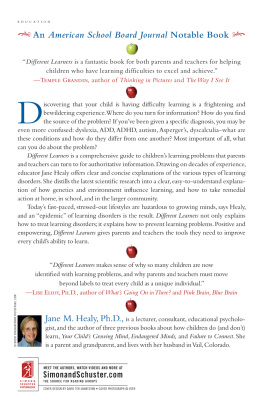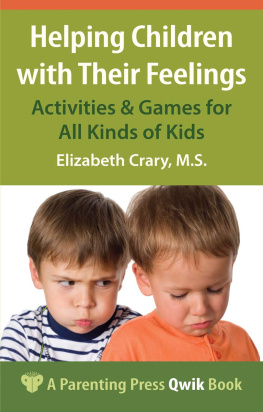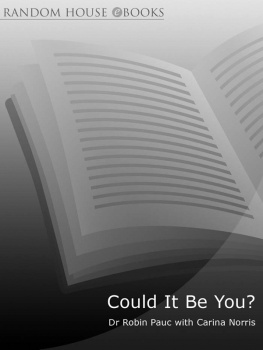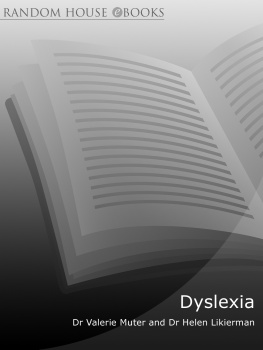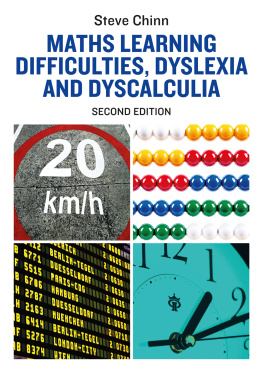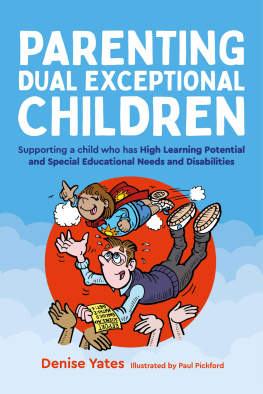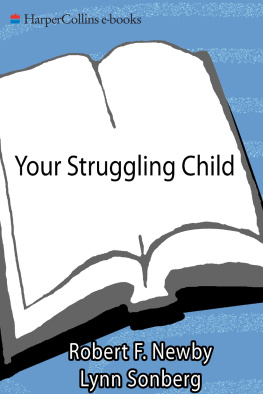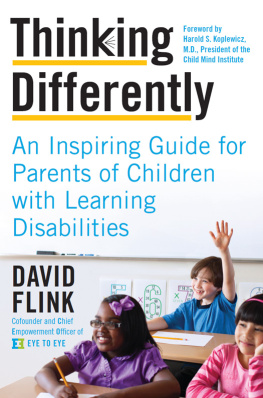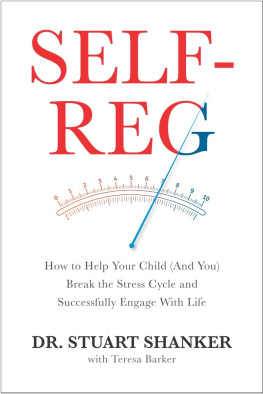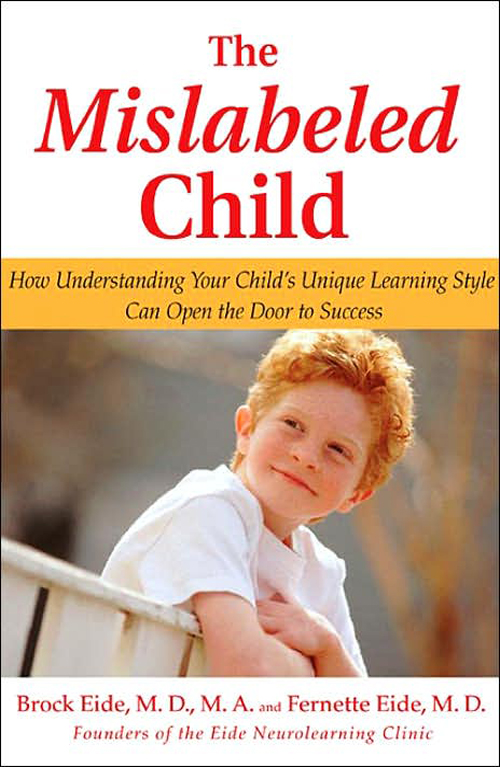
The
Mislabeled
Child

LOOKING BEYOND BEHAVIOR
TO FIND THE TRUE SOURCESAND SOLUTIONS
FOR CHILDRENS LEARNING CHALLENGES
BROCK EIDE, M.D., M.A., AND FERNETTE EIDE, M.D.

For our children,
Krister and Karina:
Youre simply the best,
and we love you with our whole hearts.
And for each other:
Like our love and our life,
this book neither is, nor could be,
the work of either,
but only, equally, of both.
Contents
1
The Mislabeled Child
The beginning of wisdom is calling things by their right name.
ANCIENT CHINESE PROVERB
M ichael was an eleven-year-old boy from a small midwestern town. When his parents brought him to see us, they shared the following painful but all-too-familiar story.
From his earliest years, it was clear that Michael was a bright and talented child. However, soon after he started school, it was also clear that he was experiencing a surprising degree of difficulty learning to read. Although Michael easily mastered all the names of the letters and many of their sounds, he couldnt seem to apply this knowledge to decoding whole words.
Michaels mother spent endless hours trying to teach him to read. Progress was slow at firstfor a long time almost nonexistent. Finally, at the end of second grade, something just clicked, and Michaels reading comprehension skyrocketed. During third grade, Michael earned a place in his classs advanced reading group, and he remained there for the next several years. He scored consistently above the ninetieth percentile on standardized tests of reading comprehension, just like the others in his group.
Yet Michael and his parents both knew that something was still wrong with his reading. While he could interpret the meaning of most long passages (at least as long as he read them silently), he often confused the meaning of short, succinct sentenceslike instructions, test questions, or story problems in mathsometimes with disastrous consequences.
Michael also had difficulty reading aloud. He frequently skipped words or whole lines and constantly made mistakes when decoding even the simplest words. Before long, the thought of reading aloud before his classmates was his greatest fear.
Writing was not much better. Although Michael had an extremely strong knowledge base and a vivid imagination, he just couldnt get his thoughts down on paper. Instead of reflecting his interesting, intelligent, and often humorous thoughts, Michaels writing appeared childish, ungrammatical, and nearly indecipherable, as poor in content as it was in form. As time went by, Michaels parents noticed that he increasingly tried to dumb down his writing so that hed only have to use the few words he knew he could spell. In addition, although his work always looked as if hed dashed it off in a hurry, Michael never had enough time to finish his in-class assignments, and each night at home he spent hours struggling with work that should have taken just minutes.
Michael had problems beyond language as well. In math he frequently made careless errors, despite the fact that he clearly had an excellent understanding of math concepts. In gym class and on the playground, Michael struggled with a severe lack of coordination. He particularly suffered when forced to participate in team sports requiring complex movements, quick reactions, or hand-eye coordination.
Although Michael had always been bothered by these difficulties, he managed (through heroic efforts) to get mostly As during his early elementary years. However, by the time he reached fifth grade, Michael found that he could no longer keep pace with the growing demands for reading and writing. Midway through the year, he reached a crisis. Previously hed had bouts of self-doubt and depression, but hed always been able to bounce back. Now he seemed burdened beyond enduring. He grew increasingly self-critical, repeatedly calling himself stupid and dumb. He began complaining of headaches and stomachaches and of feeling too ill to go to school. He even began hitting himself on the head when he was frustrated, saying that he needed to be punished for being so stupid.
In the depth of his crisis, Michael confided in his mother, who recorded the following conversation. Michaels answers bear witness to the depth (and the causes) of his pain but also to his deep intelligence, insight, and verbal talents.
Mom: How would you describe yourself?
Michael: Not smart, maybe even below average. Maybe even stupid or at times worthless.
Mom: How do you feel about school?
Michael: I feel like school is hard because I cant get my answers down on paper. If I could answer questions out loud, I could snap the answers off. When I pick up a pencil, I feel like the task is actually getting my answer on the paper, not answering the question itself. Im embarrassed at school about how I write, how no one can read my writing and how I cant spell, especially when we have a sub and have to pass our papers around for other kids to grade. Kids dont say anything just then, but afterward sometimes a few of my classmates will make me feel lousy about how bad I write and read. Sometimes I miss the whole worksheet because I cant read some part of the directions. I feel like an impostor when Im sitting there in class and everybody else around me is reading. Im trying to read the words in my own way, by memorizing what the word looks like, and Im sitting there fearing that Im going to be called on to read aloud. When I am called on to read aloud, feelings of fear, nervousness, and frustration all rush through my head, because I know I cant really read. I stumble over words and am embarrassed about what others think. My classmates think Im a good reader because of the class Im in, but Im not. Im an impostor because Im a good guesser.
Mom: What are your educational goals?
Michael: I want to get the best grades I can. Id like my work to get on the Principals Pride Board. Id like for things to be the way they are supposed to be. Id like to be able to read and write and to be able to do the stuff normal kids do. I dont know how to read or write, and I want to be able to, like other kids do. I want to go to college and be successful. Id like to become an engineer so I can build or design things, or go into politics so I can be famous. I want to do better at school academically.
Mom: What are you most proud of?
Michael: I dont know. I dont see anything to be proud of in myself.
Mom: What would you like to see happen?
Michael: I would like to learn how to help myself get better at schoolwork and would like to try to overcome my disabilities. I want others to understand how hard my disabilities make it for me to do my classwork.
Michaels parents were understandably heartbroken and more than a little frightened by this crisis they were witnessing in their son. They approached his school district for help, as they had on several prior occasions. They described Michaels emotional struggle and how his school problems seemed to be the cause. The school district disputed the connection. Michaels test scores and grades were all average or above. How could he have a learning problem? Maybe (they suggested) he just needed to try harder or pay more attention to his work. Most likely, they explained patiently, it was just a matter of unrealistic expectations. Maybe Michael really was doing the best he was capable of. Perhaps he expected too much of himself. Maybe his parents were pushing too hard. After all, not every child can be a genius. In any event, Michael certainly didnt fall two standard deviations below average, which is what the district required for children to qualify for services.


